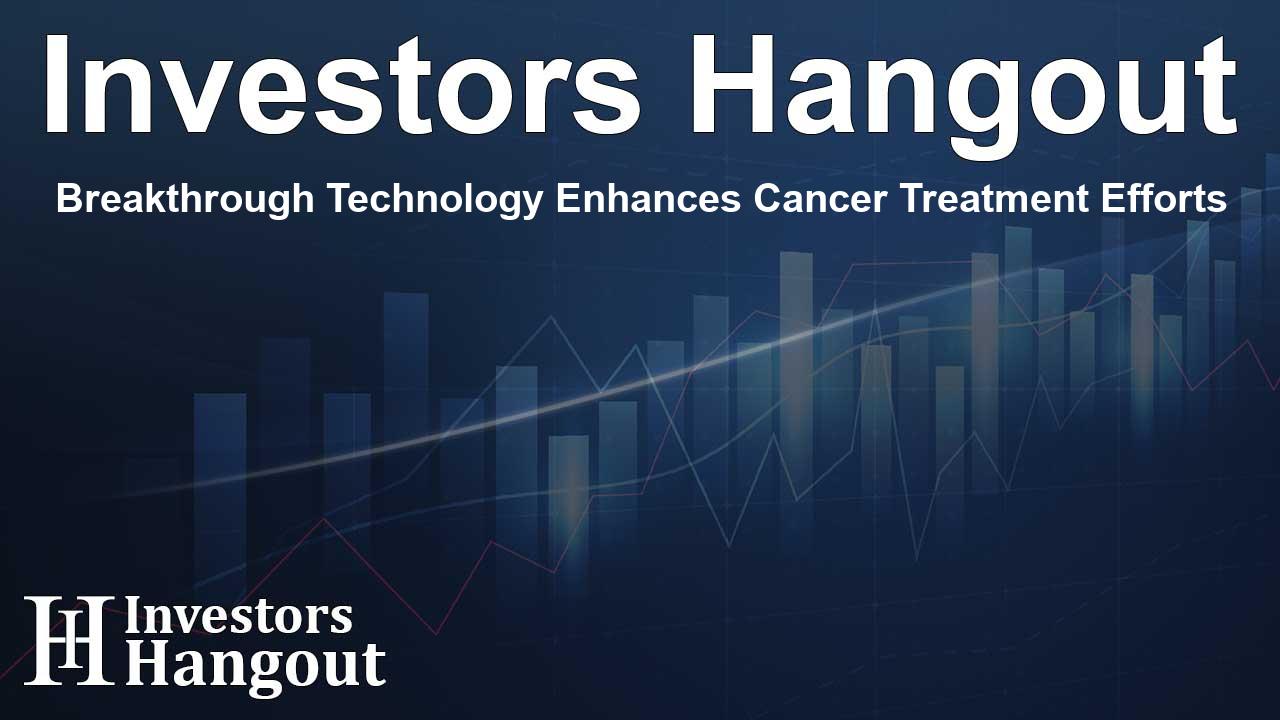Breakthrough Technology Enhances Cancer Treatment Efforts

Pioneering Immunotherapy Research at Children's Hospital
Researchers at Children's Hospital of Philadelphia (CHOP) are at the forefront of developing cutting-edge technologies aimed at advancing precision medicine. The synthesis of innovative tools has made significant strides in the recognition and targeting of cancer cells, holding great promise for effective treatment strategies.
Introducing ATLAS-seq Technology
In a groundbreaking study recently published in the journal Nature Communications, the CHOP team, in collaboration with the Perelman School of Medicine, unveiled a novel screening technology known as Aptamer-based T Lymphocyte Activity Screening and SEQuencing (ATLAS-seq). This innovative method is designed to improve the identification of antigen-reactive T cells, which play a critical role in the immune response against cancerous cells.
Understanding the Mechanism Behind T Cell Activation
At the heart of this research lies the understanding of T cell receptors (TCRs). TCRs are essential protein complexes that reside on the surface of T cells, enabling these immune cells to recognize and bind to specific antigen peptides. This interaction instigates a series of cellular events leading to T cell activation. However, conventional techniques for isolating TCRs often miss those that can most effectively trigger T cell activity, representing a fundamental challenge in cancer immunotherapy.
Enhancing Efficiency with ATLAS-seq
According to Dr. Lan Lin, the senior author of the study and an Assistant Professor at CHOP, the TCRs identified through ATLAS-seq showcase significantly higher efficacy in exiling target cells when compared to those isolated using traditional methods. This technology not only streamlines the TCR screening process but also enhances the capability to pinpoint TCRs that exhibit robust functional activity.
Innovative Applications for Cancer Treatment
By merging a single-cell approach with an advanced aptamer-based fluorescent molecular sensor, the ATLAS-seq technology detects T cell activation via fluorescence signaling. In their study, researchers employed a sophisticated microfluidic system to isolate individual T cells responding to specific antigen peptides and subsequently identified their unique TCR sequences utilizing single-cell sequencing.
Future Impact on Cancer Therapies
Dr. Lin envisions a transformative impact of ATLAS-seq technology on the identification of TCRs targeting tumor antigens, potentially propelling the creation of novel T cell immunotherapies that could tackle a range of challenging cancer cases. Such advancements represent a beacon of hope for patients facing difficult-to-treat cancers.
Research Support and Acknowledgments
This significant work received backing from several grants, including a National Institutes of Health grant designed to support innovative cancer research efforts. The collaborative initiative among researchers underscores the ongoing commitment to pushing the boundaries of immunotherapy and enhancing patient outcomes.
About Children's Hospital of Philadelphia
Founded in 1855, Children's Hospital of Philadelphia stands as the nation’s first pediatric hospital, emphasizing a full spectrum of quality care and groundbreaking research. With a comprehensive pediatric research program and a steadfast tradition of advancing healthcare for children, CHOP continues to strive for excellence in improving health, training the next generation of healthcare practitioners, and conducting transformative research. The institution utilizes its extensive network, including a wide array of primary care practices and specialized centers, to provide exceptional care close to home.
Frequently Asked Questions
What is the novel technology developed by CHOP researchers?
The new technology is called Aptamer-based T Lymphocyte Activity Screening and SEQuencing (ATLAS-seq), designed to enhance the identification of antigen-reactive T cells.
How do T cell receptors (TCRs) work?
TCRs are protein complexes on T cells that bind to antigen peptides, triggering an immune response that activates T cells to attack targeted cancer cells.
What are the advantages of using ATLAS-seq?
ATLAS-seq improves TCR screening efficiency, allowing for the identification of TCRs that exhibit stronger functional activity against cancer cells.
What potential impact could ATLAS-seq have on cancer therapies?
ATLAS-seq could pave the way for novel T cell immunotherapy treatments aimed at targeting tough cancers, expanding options for patients.
How has this research been supported?
The research has received funding from various grants, including those from the National Institutes of Health, emphasizing the importance of innovation in cancer treatment.
About Investors Hangout
Investors Hangout is a leading online stock forum for financial discussion and learning, offering a wide range of free tools and resources. It draws in traders of all levels, who exchange market knowledge, investigate trading tactics, and keep an eye on industry developments in real time. Featuring financial articles, stock message boards, quotes, charts, company profiles, and live news updates. Through cooperative learning and a wealth of informational resources, it helps users from novices creating their first portfolios to experts honing their techniques. Join Investors Hangout today: https://investorshangout.com/
Disclaimer: The content of this article is solely for general informational purposes only; it does not represent legal, financial, or investment advice. Investors Hangout does not offer financial advice; the author is not a licensed financial advisor. Consult a qualified advisor before making any financial or investment decisions based on this article. The author's interpretation of publicly available data shapes the opinions presented here; as a result, they should not be taken as advice to purchase, sell, or hold any securities mentioned or any other investments. The author does not guarantee the accuracy, completeness, or timeliness of any material, providing it "as is." Information and market conditions may change; past performance is not indicative of future outcomes. If any of the material offered here is inaccurate, please contact us for corrections.